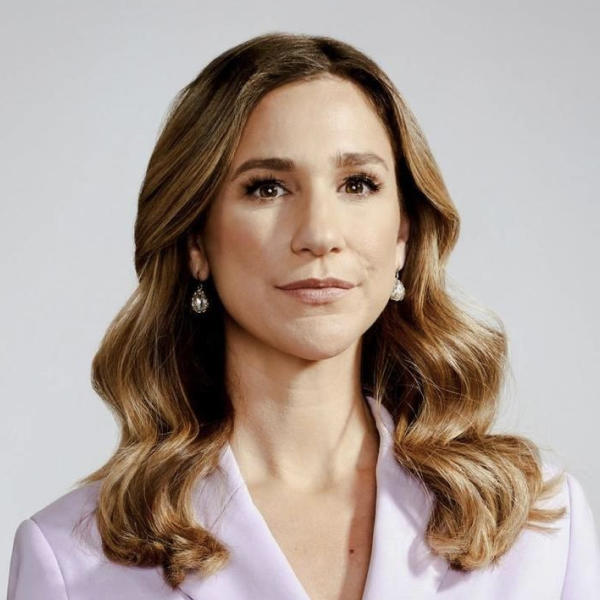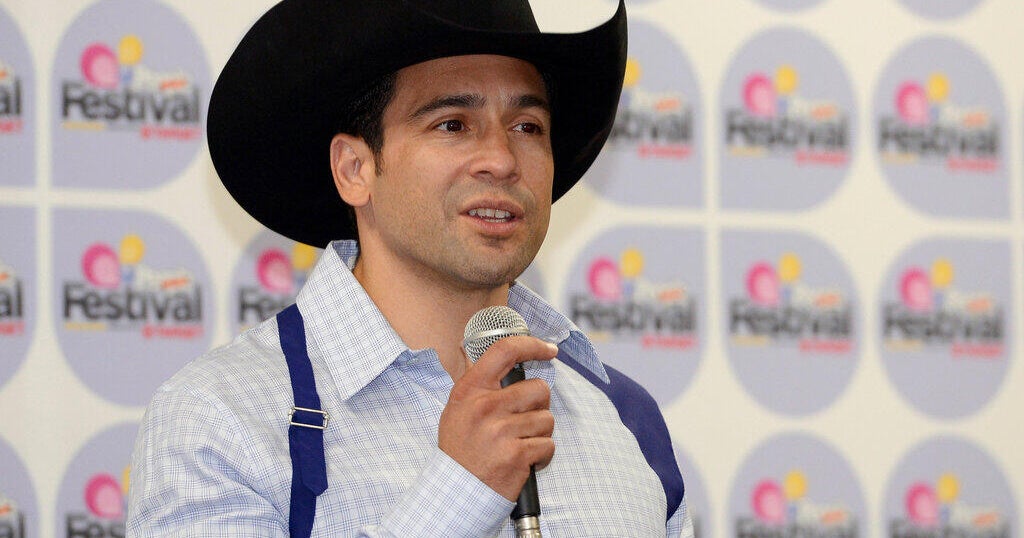The five big things you need to understand about the Democratic primary right now
Des Moines — Democratic presidential candidates are trading in kumbaya for combat.
With three months to go before the Iowa caucuses, the 2020 campaigns are moving out of the introductory phase of the primary season and into the knife-sharpening phase, seeking to snuff out the competition as voters get closer to making up their minds.
Candidates debuted new attack lines during major party cattle calls and campaign events across Iowa over the weekend and have continued to hone them throughout the week. In this phase of the campaign, it's Vice President Joe Biden and Massachusetts Senator Elizabeth Warren at center stage, with the surging South Bend Mayor Pete Buttigieg looking to portray himself as a "unity" candidate.
The new urgency of the campaign has forced several campaigns to reshuffle or reassess their respective standings in the race. The impeachment inquiry hanging over Washington and driving the daily news cycle has made it more difficult for lower-tier campaigns to break through. At the same time, few voters on the ground are asking about the latest moves in Washington, and are instead focused more on health care, the economy, and climate change.
After spending the past several days on the ground in Iowa, attending presidential town halls and talking to lots of voters, here are five things we are learning about the state of the race.
The passive-aggressive primary is over
Biden is attacking Warren. Buttigieg is attacking Warren. Warren is attacking Biden and Buttigieg. Julián Castro is attacking Buttigieg.
In other words, this is the part of the campaign season when candidates stop being polite and start getting real.
Facing criticism from Biden over her plan to pay for Medicare for All in Iowa over the weekend, Warren suggested the former vice president may be "running in the wrong presidential primary."
In a Medium post, Biden called Warren condescending. "Some call it the 'my way or the highway' approach to politics. But it's worse than that. It's condescending to the millions of Democrats who have a different view," he wrote. "It's representative of an elitism that working and middle class people do not share: 'We know best; you know nothing.'"
Biden continued the attacks during an interview this week with host Joe Madison on SiriusXM. "If you don't agree with Elizabeth Warren, you must somehow be not a Democrat. You must somehow be corrupt. You must somehow not be as smart as she is," he said.
And as Buttigieg is gaining ground in Iowa, Warren debuted a new line of criticism for him in the Hawkeye State. "I'm not running some consultant-driven campaign with some vague ideas that are designed not to offend anyone," she said on stage at the Liberty and Justice dinner, a big annual gathering of Democrats, which was seen as the launching pad for Barack Obama in 2007. "Anyone who comes on this stage and doesn't understand we're already in a fight is not going to win that fight," she said.
This came after Buttigieg had targeted Warren during the Democratic debate in Columbus last month, where the Massachusetts senator was pressed on her health care proposal. In Iowa, Buttigieg took a not so subtle swipe at Warren, who has been leading polls in the state: "We can do it and we can do it together and agree on everything and solving problems than just fighting."
As Buttigieg rises in the polls, he has also been the subject of criticism from within the party. In an interview this week on The Daily Show, Julián Castro addressed the lack of support the Indiana mayor has among African American voters.
"We are going to need a nominee that can resonate in the African American community," he said. "I saw a hundred different cities when I was HUD secretary and I was mayor of a city that is 14 times larger than South Bend. In fact, we could almost fit South Bend in our Alamo Dome in San Antonio."
I love Joe, but…
New polls show the former vice president leading nationally but lagging behind in first two early states. A new Quinnipiac University poll found Warren with 20%, Buttigieg with 19%, Bernie Sanders with 17% and Biden with 15%.
While his diverse coalition set him apart from his fellow contenders and helps boost him in states like Nevada and South Carolina, there are questions about whether a poor finish in Iowa could stunt the campaign. This is the third time Biden has competed in the Iowa caucuses after his unsuccessful run in 1988 and 2008. And Iowa voters often mention their familiarity with Biden and their respect for him, even as they are interested in the other candidates.
"I like Joe but he's not a candidate for me. He's not connecting with American especially with younger folks," said Meghan Torkelson, who came to see Buttigieg in Decorah and is still deciding on a candidate.
"Biden is a very good man. Very good VP," said Jerry Hageman, who attended a union party gathering in Cedar Rapids over the weekend. "Personally he's got baggage that Trump's gonna take advantage of."
Others echoed those sentiments, saying that while they liked Biden they were still searching for an alternative.
"To be frank, I was supporting Joe Biden because of his experience but I am not certain right now," said Daniel Power, a professor at University of Northern Iowa who came to a Democratic fish fry in Cedar Rapids. "Time for a generational change," he said, noting that he had an interest in New Jersey Senator Cory Booker.
"Joe learns things about people all the time, he wants to help people and see if they are okay but I am not feeling the energy with his campaign," said Tom Kinn, president of the national association of letter carriers, who also attended the fish fry in Cedar Rapids.
'Tis the season for shake-ups and break-ups
While some campaigns are surging, other are reshuffling or packing it up all together. Beto O'Rourke's withdrawal from the race underscored the pressure of the calendar: With just three months to go before the Iowa caucuses, campaigns have to figure out if they are able to actually compete.
Kamala Harris let go of her New Hampshire field staff to focus on Iowa. She has tailored her campaign to smaller, more intimate events. She has even been cooking for supporters in their own kitchens, for example.
In September, her campaign said they were aiming for a top three finish. Yet in an interview with CBS News' Ed O'Keefe, the senator looked to manage expectations. "We are going to end up in Iowa doing very well," she said. "Iowa being the first state, you know, got to be all in here in order to be able to get to the point that we can actually get to New Hampshire and other states later."
Castro also laid off staff in New Hampshire and South Carolina in order to focus on Iowa. In October, his campaign made an aggressive fundraising pitch to raise $800,000 by the end of the month or else would have to drop out of the race. He reached the goal, but has not yet made the cut for the Democratic debate in November.
Underdog candidates often point to the campaigns of John Kerry in 2004 and John McCain in 2008, noting each had to rise again from the dead and eventually became their respective party's nominee. But in a field this crowded, campaigns are also conscious of giving voters any excuse to look to another candidate.
Striving for the Obama Magic
As candidates jockey for position in Iowa, several have evoked the come-from-behind caucus victory of Barack Obama in 2008. Campaigning in the state over the weekend, Buttigieg tried to draw parallels, telling the audience that "the first time I came here was a volunteer to knock on doors for a candidate with a funny name."
The reference resonated with Jack Knight, an Iowa resident who came to see Buttigieg in Decorah over the weekend. "The whole atmosphere feels like Obama when he was getting his momentum. Pete is not Obama, but the atmosphere is the same... I have to go to more rallies for more candidates, [but] I am going for the feeling."
Iowa Democrats are proud of the role they played in helping to elect a history-making president. And underdog campaigns here point to Mr. Obama's election as a reason to hold out hope that, with a good organization, anything can happen.
"In Iowa they actually make decisions based on what is possible, even if other people don't think it's possible," Harris said. "This is what Iowa has done in the past and this is what I'm betting on."
But strategists also caution there are significant differences between now and then. "The candidate pool this time is so incredibly deep," says Elesha Gayman, a former state lawmaker who worked on Mr. Obama's campaign in the state in 2008. "[Mr. Obama] just had that captivating thing about him, whereas this time there are multiple candidates that have that."
"What we were looking at when Obama first ran and what we're looking at today, there's a different skill set we need," she says. "We needed that hope and that vision then, but there's a lot of other stuff going on...it's really hard to compare the times because our country is in such a different era."
"I'm an Iowan, so I haven't decided yet"
Perhaps the biggest driver for some lower-tier candidates staying in the race: Polls continually show that a significant portion of Iowa caucus-goers still remain undecided.
The Quinnipiac University poll released this week found that 52% of those who named a first choice candidate also said they might change their mind before the caucus. Only 46% said their mind was made up.
Many voters interviewed by CBS News said they had narrowed down the field to a few candidates, but figured they still had time to decide. As Kieth Rollenhagen, a retired building designer from Ames, said ahead of a Warren event there: "I'm an Iowan, so I haven't decided yet."




